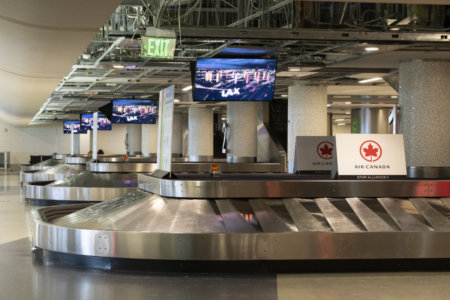
Immigration, Refugees and Citizenship Canada (IRCC) held its third largest Express Entry draw on May 31, inviting 5,956 candidates to apply for permanent residence under the Canadian Express Class (CEC). They each had a Comprehensive Ranking Score (CRS) of at least 380, which is the second-lowest it has been this year. IRCC data indicates that 95% of CEC candidates were in the Express Entry pool at the time.
IRCC invited 4,114 more candidates in this round compared to the previous CEC-only draw, which had a lower CRS requirement of 363. This comes after a surprise draw on May 20, where candidates with CRS scores of at least 397 were invited. The largest draw overall this year was held in February, with a record number of 27,332 candidates — of which 23,877 successfully applied within three months.
So far, Canada has admitted 108,500 new immigrants via Express Entry-managed programmes, while IRCC has invited 74,773 Express Entry candidates to apply for permanent residence. As detailed in the Immigration Levels Plan, Canada aims to attract 400,000 new permanent residents by 2023.
Dr. Joseph Yu Kai Wong came to Toronto from Hong Kong in the 1960s. During the pandemic, he has raised funds for 700,000 medical masks to help keep the community safe. #ImmigrationMatters this #AsianHeritageMonth https://t.co/QE2IpO4zwD pic.twitter.com/vVE2JSSB8t
— IRCC (@CitImmCanada) May 31, 2021
IRCC prioritising domestic candidates in Express Entry
All these figures point to one truth: despite the pandemic, Canada is determined to grow its population with skilled immigrants. In fact, CIC News reports that the country has been prioritising candidates who are already in the country because it is easier for them to complete permanent residency landing. On the other hand, candidates approved while overseas may not be able to travel to Canada soon enough in view of ongoing pandemic travel restrictions.
Held every fortnight, the CEC Express Entry draw invites candidates who are eligible for permanent residence to submit their applications. Candidate eligibility is based on the CRS, as opposed to the Provincial Nomination Program (PNP), which uses Expression of Interest (EOI) points. PNP candidates automatically get an additional 600 points towards their overall score, whereas CEC candidates — who are not competing for invitations from other programmes — can apply on lower CRS scores.
If you have at least one year of skilled work experience in Canada, and hold a higher education qualification from a Canadian university, you probably qualify for permanent residence here. The Express Entry system allows you to express interest in three Federal High Skilled programmes: Federal Skilled Worker Program, Federal Skilled Trades Program, and CEC. Eligibility is determined by CRS points, which are awarded based on skilled work experience, education, age, official language skills, and other factors that you may view on the official website.










